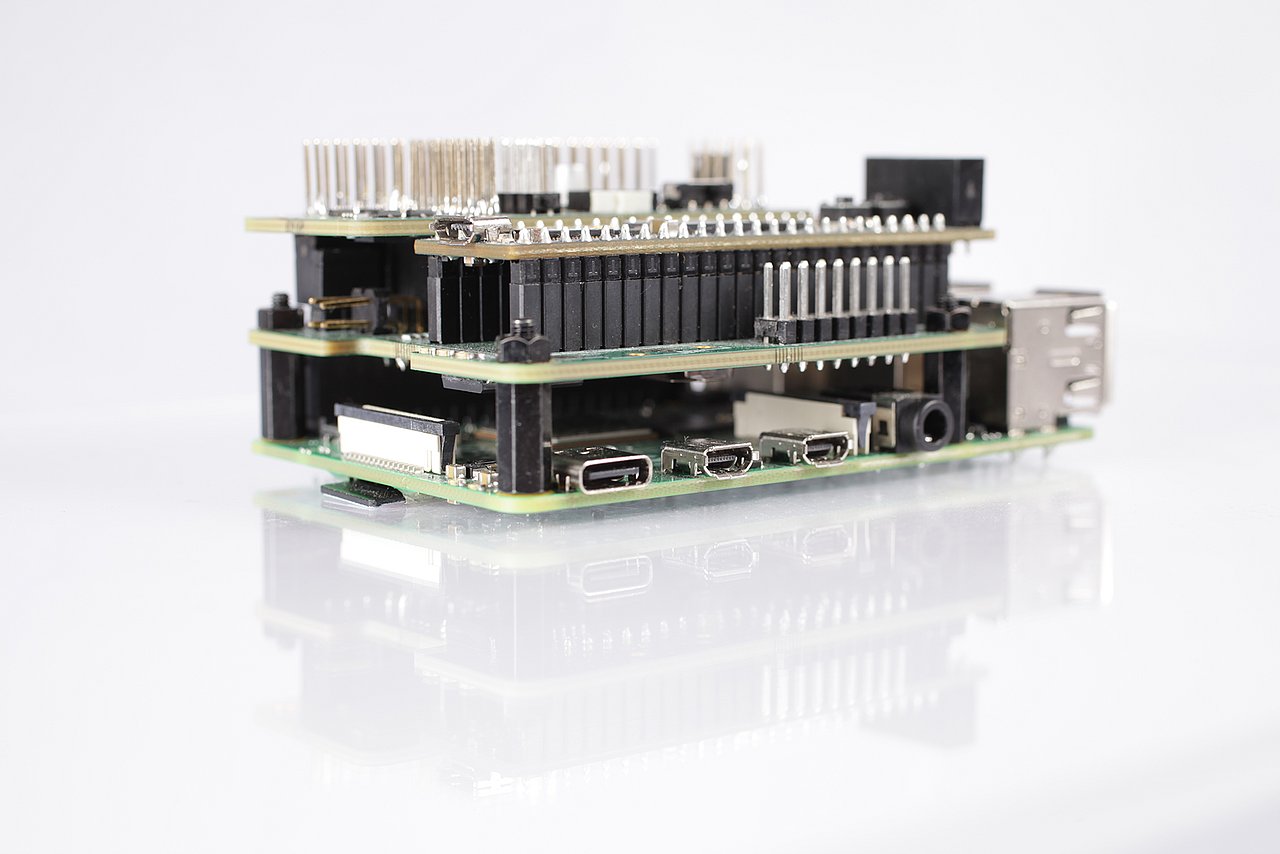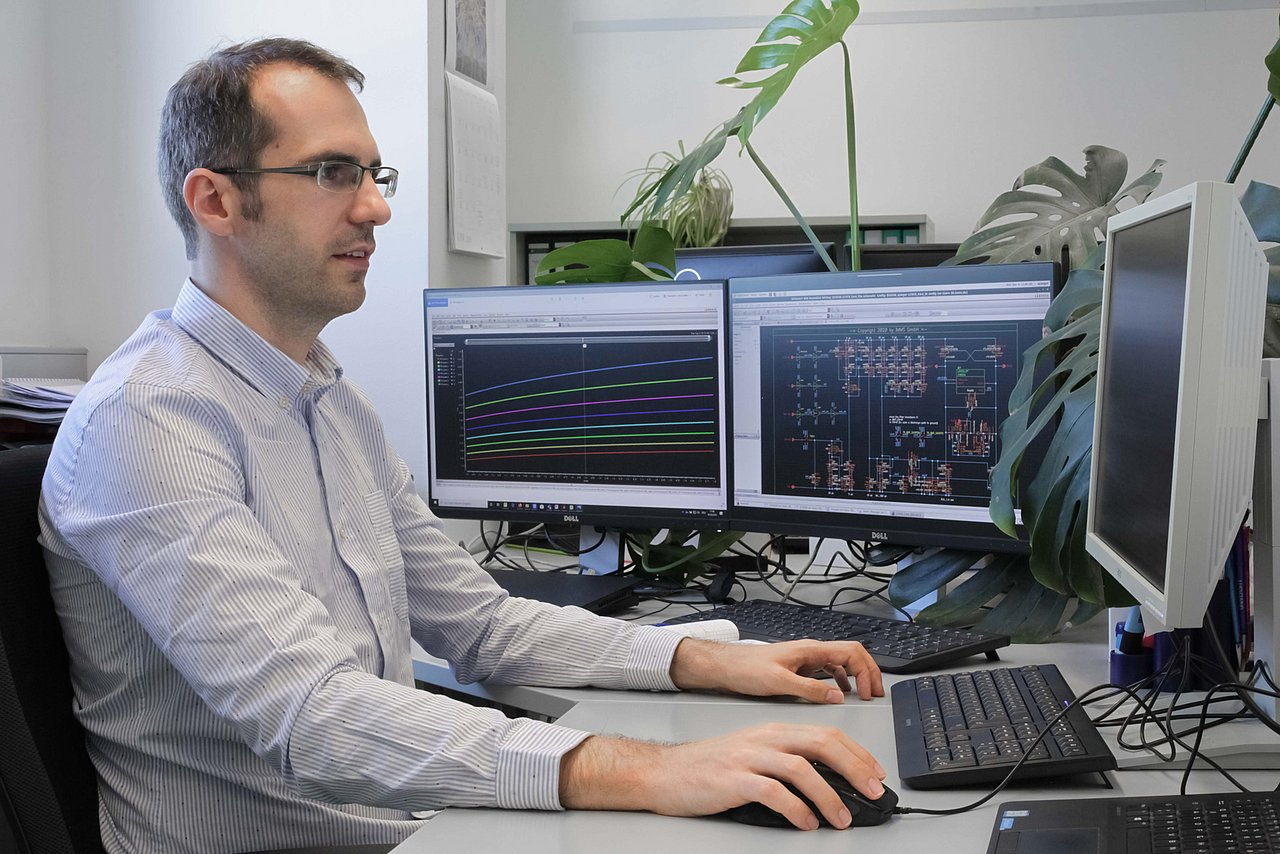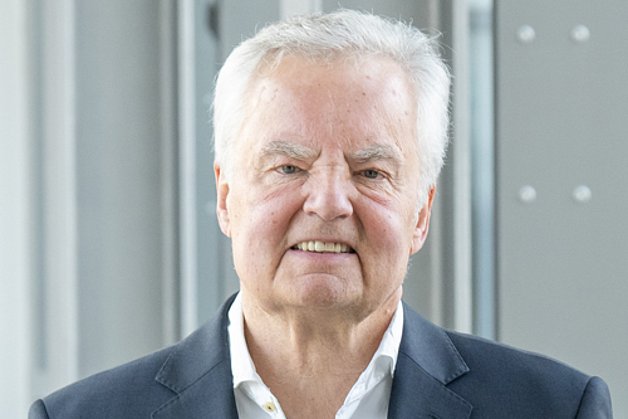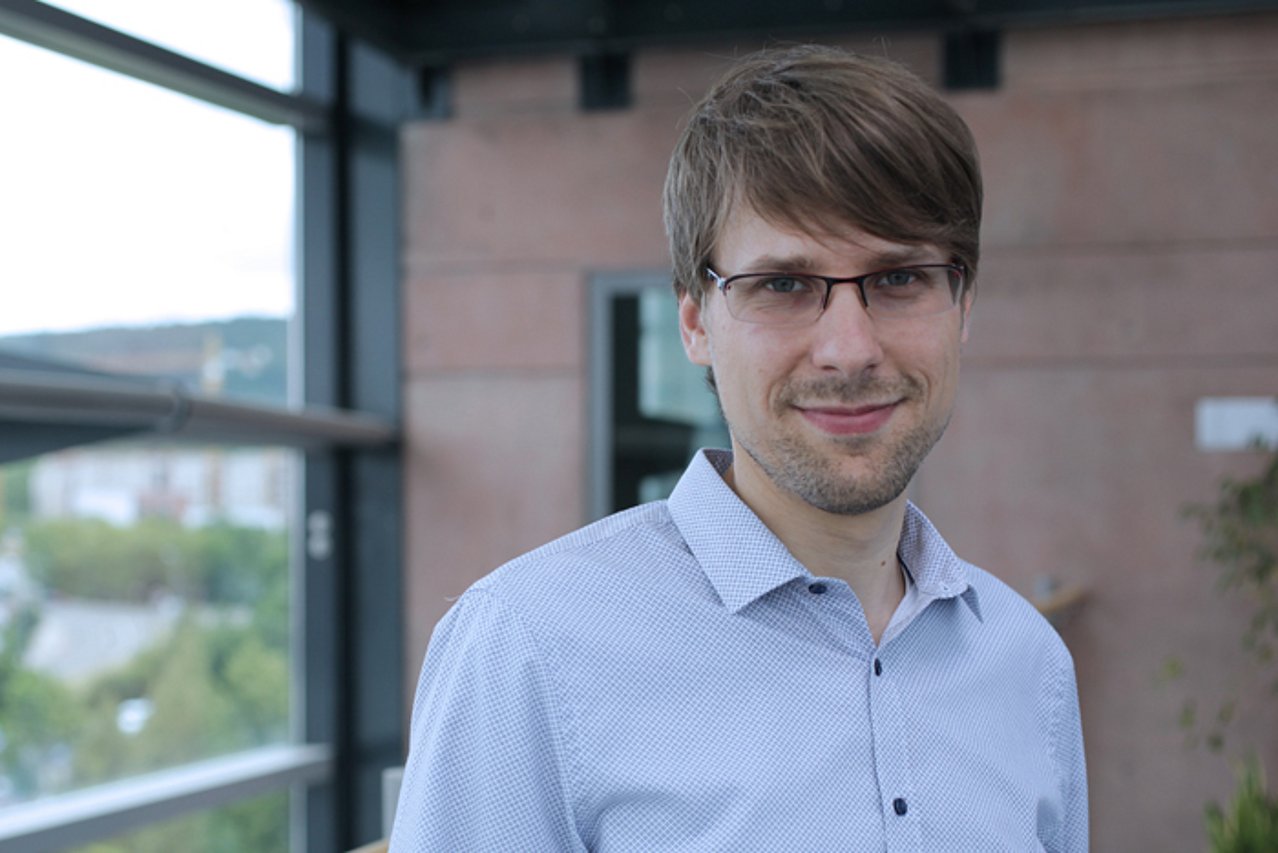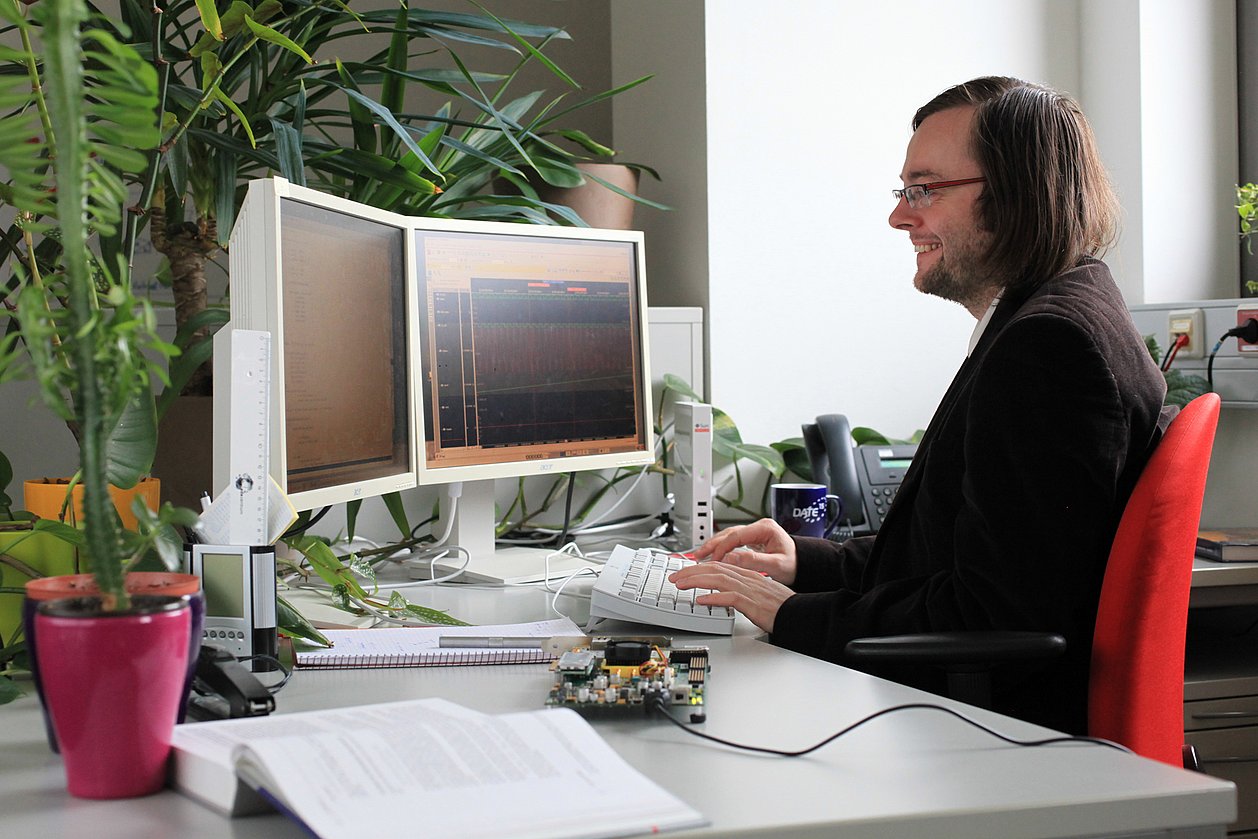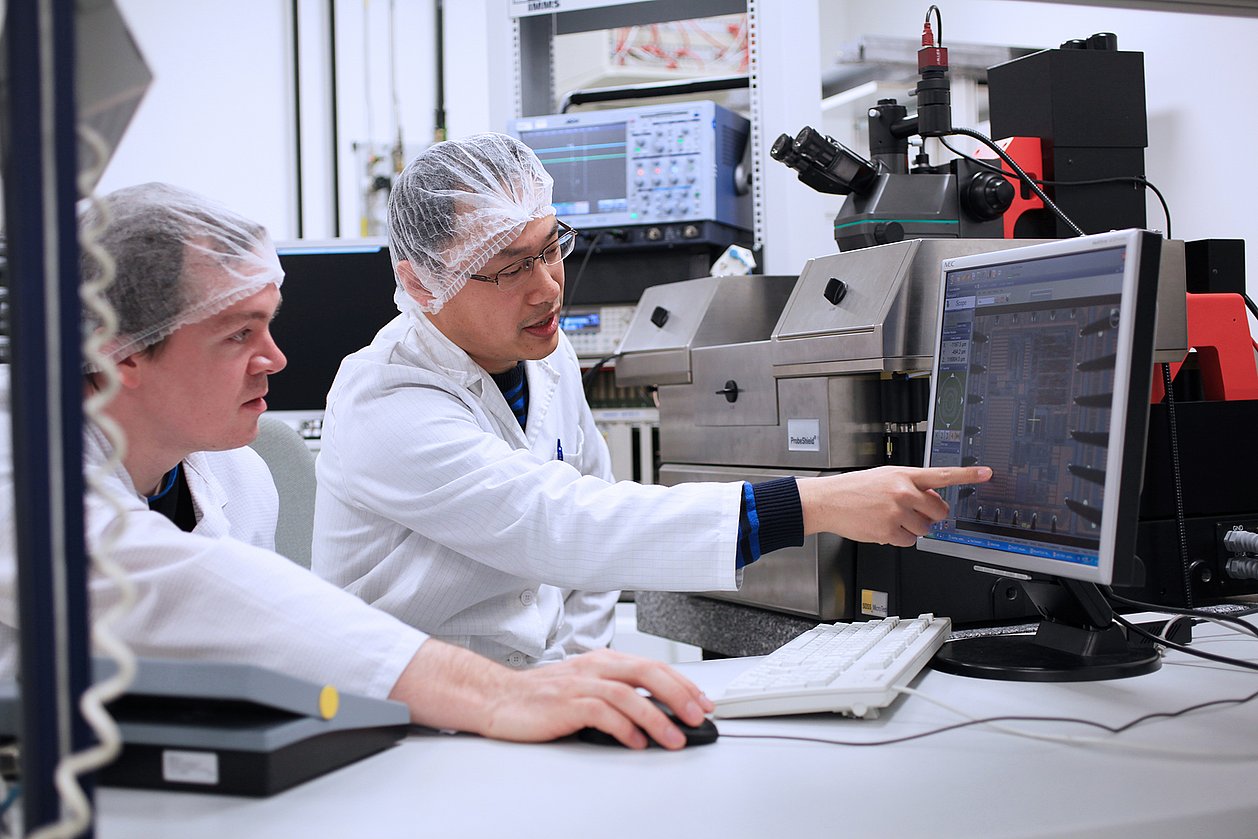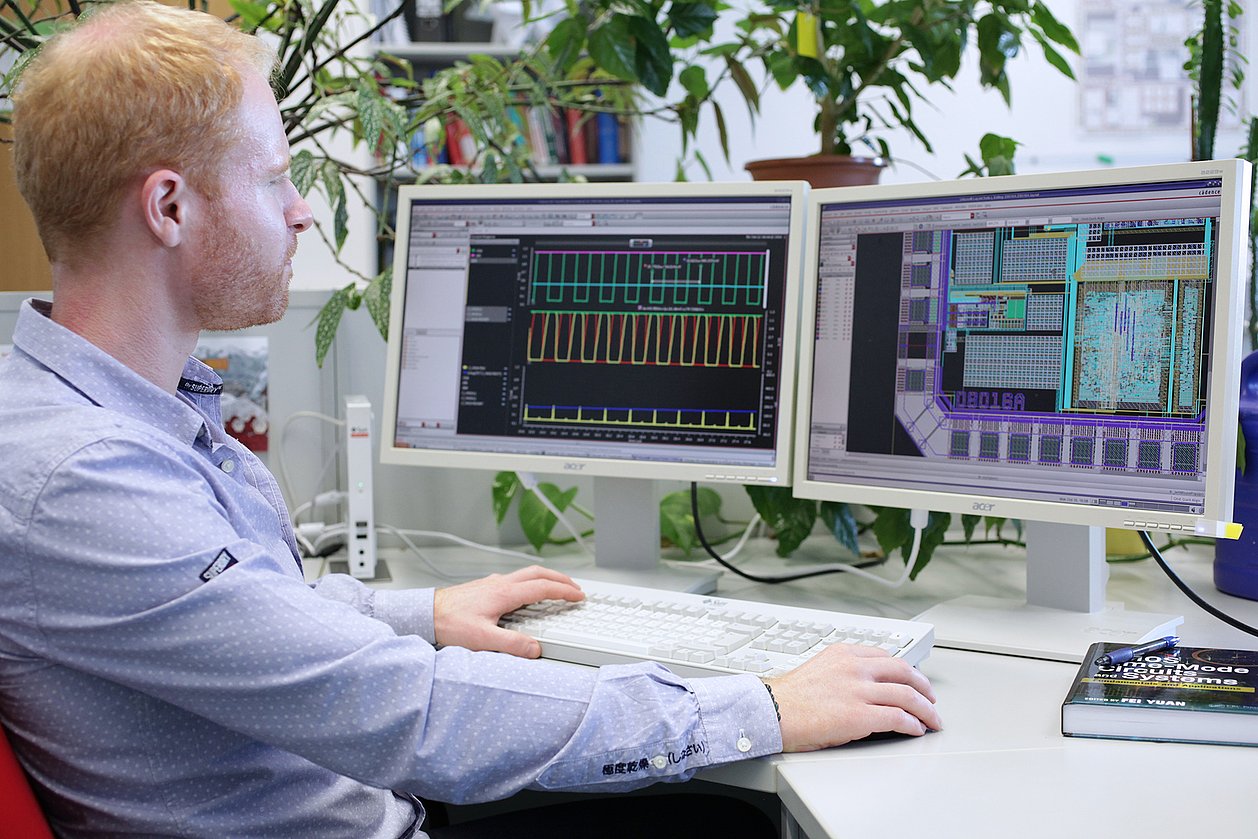Project VE-ARiS
IMMS developed copy protection solutions for integrated circuits to secure the know-how of partners
Counterfeits and copies as a risk for safety-critical systems and economic assets
Copied chips are a problem for manufacturers and users. Manufacturers or design houses design innovative chips with a great deal of expertise and financial investment and suffer economic damage with every copy of these chips. Users cannot rely on the performance parameters of the originals when dealing with copies and therefore potentially risk the safety of their own products.
The copies are created in various ways: a chip can be “rebuilt” on the basis of the data sheet, i.e. a new chip design with approximately the same properties is created. If the circuits themselves are to be imitated, the chips are often analysed using various methods to reproduce the internal structure. In some cases, the chips are polished in small steps and photographed under a microscope and the layouts required for production are then redrawn using these images.
Validation of methods on systems of industrial partners
In the ARiS project, IMMS has researched methods to make this copying more difficult and thus protect chips against it. Two research directions were pursued: A watermark that can be used to mark original chips was investigated to prevent copying. As with banknotes, a check is incorporated to identify an original. Attacks, such as the delayering of chips, were also the focus of the work. A machine-learning-based attack model was developed at IMMS with which this reverse engineering process can be simulated. On this basis, circuit components can be found that are easy to copy and can be “hardened” in the next step. This involves using structures that are difficult to recognise. The investigated approaches to copy protection were successfully validated using various demonstrators.
Acronym / Name:
VE-ARiS / Joint project: Electronic know-how protection for innovative sensor systems – ARiSDuration:2021 – 2024
Application:
|IC design| chip design| design methodology| AI| machine learning| models| modelling| design supportResearch field:Integrated sensor systems
Related content
Reference
Dr. Heiner Flocke, iC-Haus GmbH
”By sharing expertise and resources, we were able to jointly develop a solution that met and even exceeded the requirements.“
VE-ARiS: Alberich und die Tarnkappenfabrik. SKAW – Schaltungskopierbarkeitsanalysewerkzeug
Adrian Pitterling1. Florian Kögler1. Georg Gläser1.Tage der vertrauenswürdigen Elektronik 2024, 4. - 5. Juni 2024, München
1IMMS Institut für Mikroelektronik- und Mechatronik-Systeme gemeinnützige GmbH, Ehrenbergstraße 27, 98693 Ilmenau, Germany.VE-ARiS: Elektronischer Knowhow-Schutz für innovative Sensorsysteme. Abwehr von Reserve-Engineering auf IC-Ebene
Projektkonsortium VE-ARiS (iC-Haus GmbH. Wachendorff Automation GmbH & Co. KG. IMMS GmbH).Tage der vertrauenswürdigen Elektronik 2024, 4. - 5. Juni 2024, München
VE-ARiS – „Alberich“ – Machine-Learning-basierte Vorhersage der Kopierbarkeit von ASICs
Florian Kögler1.Digitale Fachkonferenz „Vertrauenswürdige Elektronik 2022“, 9. - 10. März 2022, online
1IMMS Institut für Mikroelektronik- und Mechatronik-Systeme gemeinnützige GmbH, 98693 Ilmenau, Germany.
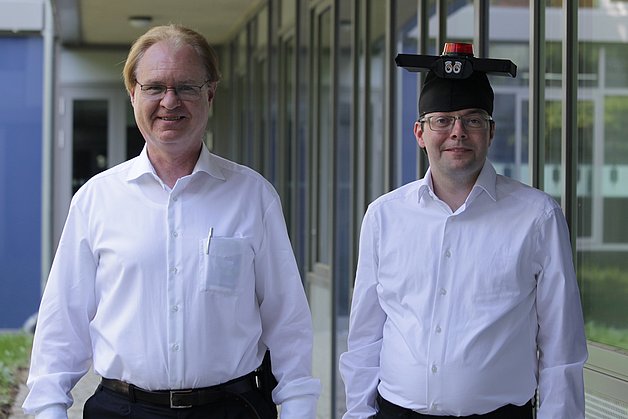
Press release,
Reliable and faster chip designs through invasive and parametric simulation methods
Dissertation on new methods for automation in integrated circuit design
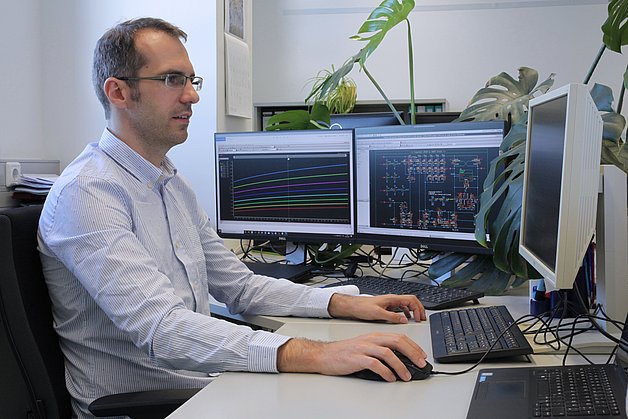
Press release,
Electronic know-how protection for innovative sensor systems
iC-Haus, IMMS and Wachendorff launch BMBF joint project VE-ARiS
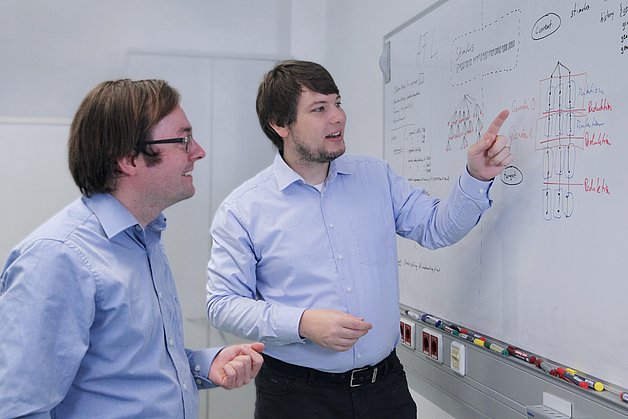
Event,
Days of trustworthy electronics 2024
Presentations of the results of the research projects of the funding guidelines for trustworthy electronics (ZEUS) and future-proof special processors and development platforms (ZuSE) of the Federal Ministry of Education and Research (BMBF)
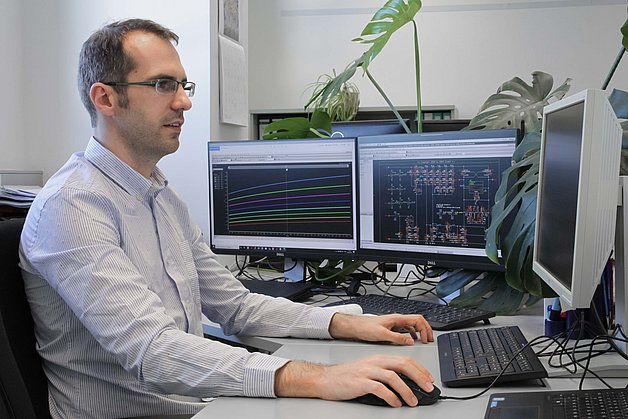
Event,
Vertrauenswürdige Elektronik 2022
Digital Conference of the Federal Ministry of Education and Research (BMBF) on trustworthy electronics
Contact
Contact
Eric Schäfer, M. Sc.
Head of Microelectronics / Branch Office Erfurt
eric.schaefer(at)imms.de+49 (0) 361 663 25 35
Eric Schäfer and his team research Integrated sensor systems, especially CMOS-based biosensors, ULP sensor systems and AI-based design and test automation. The results are being incorporated into research on the lead applications Sensor systems for in-vitro diagnostics and RFID sensor technology. It will assist you with services for the development of Integrated circuits and with IC design methods.
Funding
The VE-ARiS project was funded by the Federal Ministry of Research, Technology and Space (BMFTR) under the reference 16ME0242.


